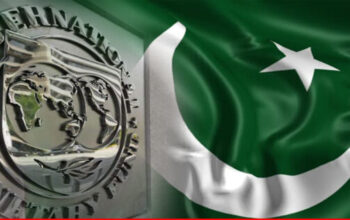Among the South Asian countries, Pakistan and Afghanistan (180th position) are in the low human development category.
By Staff Reporter
ISLAMABAD: Pakistan has dropped seven spots in the Human Development Index (HDI), ranking 161 out of 192 countries in 2021-2022, a United Nations Development Programme (UNDP) report said.
The report, titled ‘Uncertain Times, Unsettled Lives: Shaping our Future in a Transforming World’, stated that Pakistan’s life expectancy at birth is 66.1 years, and the expected years of schooling are eight. The gross per capita national income is $4,624.
Among the South Asian countries, Pakistan and Afghanistan (180th position) are in the low human development category.
Bhutan (127), Bangladesh (129), India (132), and Nepal (143) are in the medium human development category, and the crisis-hit Sri Lanka has managed to improve its position by nine points, reaching the 73rd position on the index, finding itself in the high human development category.
Switzerland tops this year’s rankings, followed by Norway, Iceland, Hong Kong, Australia, and other wealthy nations. Countries from sub-Saharan Africa are among the lowest ranked in human development, with South Sudan at the bottom.
The HDI is a measure of countries’ standard of living, health, and education.
“Nine out of 10 countries in this year’s human development report index are shown to have faced a decline,” Achim Steiner, administrator of the UNDP, said as he launched the annual flagship study.
“This has never happened before even during the last devastating global moment of crisis, the financial crisis, only one out of 10 countries faced a decline in human development indices.”
This is the first time in the last 30 years that human development in a majority of countries has gone in reverse for two consecutive years.
The report has found that around 90 percent of countries have seen “reversals in human development” in the year of the survey, pointing to a world stuck in a never-ending cycle of crisis after crisis, causing global disruptions.
The two major factors responsible for these disruptions were the Covid-19 pandemic and the Russia-Ukraine war.
The report’s lead author, Pedro Conceicao, said the unprecedented decline in human development was driven by the economic recession, and by an extraordinary decline in life expectancy. That, he said, includes the 21st-ranked United States, which has seen a dramatic drop in life expectancy due to COVID-19 from 79 years to 76.1 years.
Conceicao said other new data from the report show global levels of trust are the lowest on record. He added those who are most mistrustful hold the most extreme political views.
“Uncertainty and the feeling of insecurity harden people’s commitments to a group that shares a similar set of beliefs and increases hostility to other groups that think differently,” he said. “And digital technology often adds fuel to this flame of divisiveness. So, as a result, the report documents that democratic practices are under stress.”
The report warns insecurity and polarization are feeding off each other. And that, it says, is preventing nations from taking the collective action needed to address the multiple threats and crises the world is facing.
Copyright © 2021 Independent Pakistan | All rights reserved




